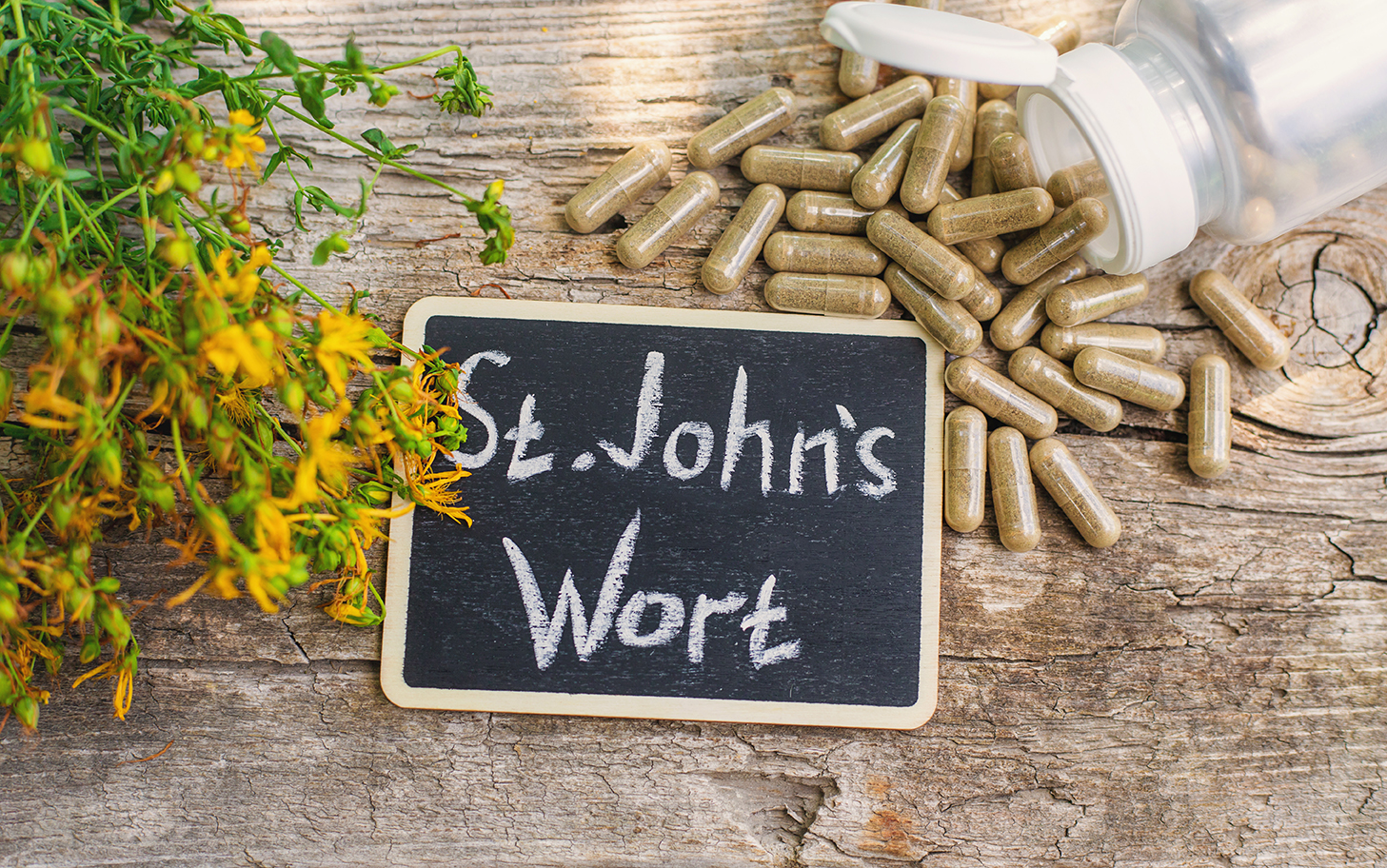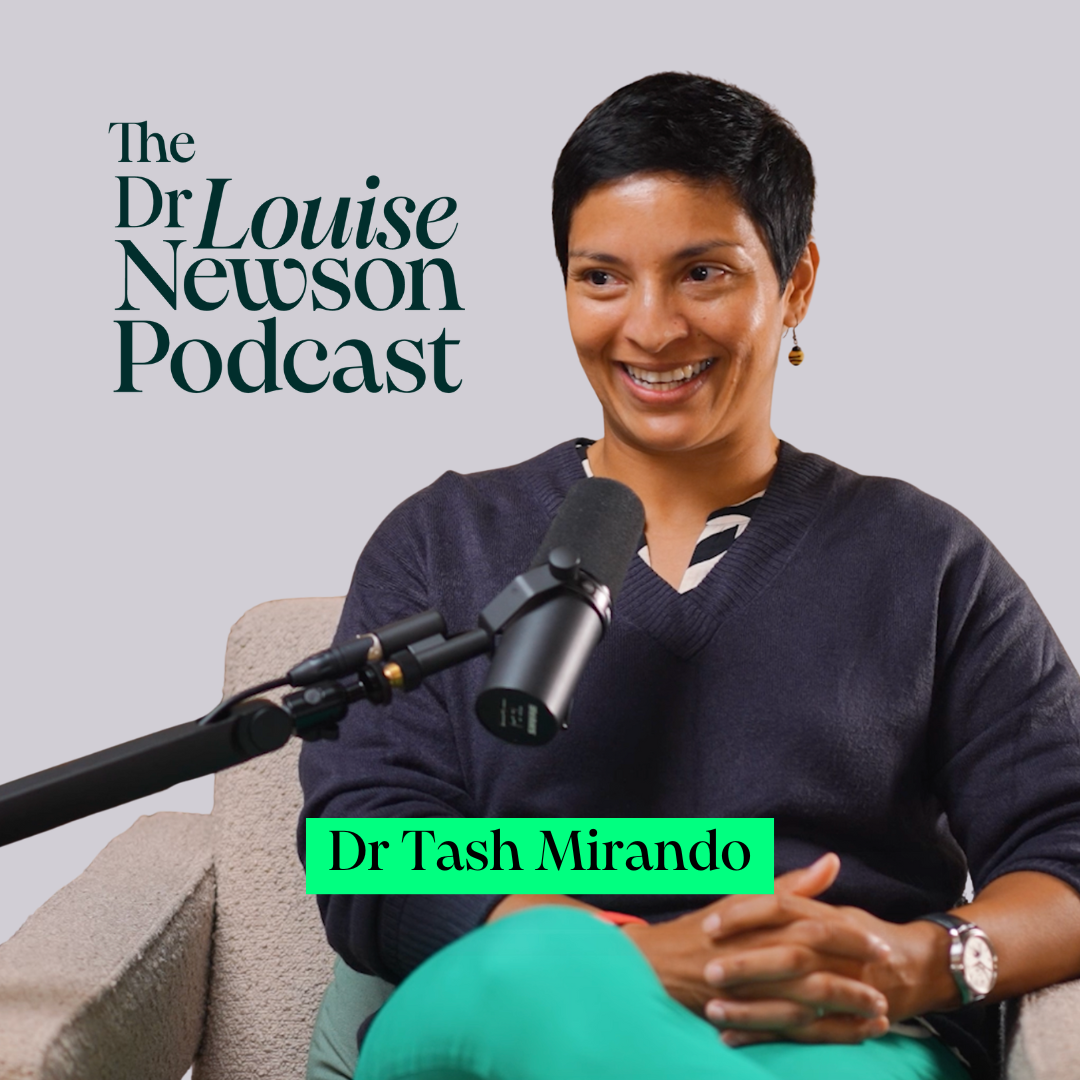If you're considering taking St John's wort to treat depression or perimenopausal or menopausal symptoms, here's what you need to know
St John’s wort is a herbal medicine made from a yellow flowered plant, which is sometimes sold as hypericum. It comes in tablets, teas, tinctures and creams and is sometimes used to treat perimenopausal or menopausal symptoms, or it can be used to treat depression.
How does it work?
St. John's Wort acts as a reuptake inhibitor of serotonin, dopamine, and norepinephrine – this means it reduces how much of these hormones are reabsorbed, thereby increasing their levels in your brain [1]. Elevated levels of these hormones can be helpful when treating depression.
St John’s wort is also thought to act as a phytoestrogen – a compound that acts like the hormone estrogen. By mimicking the effect of estrogen, it’s thought phytoestrogens may help reduce hot flushes.
How effective is St John’s wort?
A systematic review of St John’s wort for the treatment of depression found it was better than placebo in improving mild to moderate symptoms and not significantly different from antidepressant medication [2]. However, the review urged caution as there was limited assessment for side effects (see below for more on side effects).
St John’s wort is not recommended for severe depression.
RELATED: Am I depressed or menopausal?
There is some evidence St John’s wort may be beneficial for hot flushes, menopause-specific quality of life and sleep [3, 4, 5]. However, these are small trials and doses of St John’s wort vary depending on the brand and preparation and there is no clear recommended dosage.
What are the side effects?
Side effects include nausea or being sick, diarrhoea, headache, tiredness, dizziness, sleep difficulties. It can also cause skin allergies or reactions after sun exposure. Some people have experienced mania or psychosis
St John's wort may also cause serious side effects if it is taken with other medicines.
Who can take it?
St John’s wort is known to interact with many medications so check with your healthcare professional before using it.
While it may seem an appealing option if you have had or are being treated for breast cancer, as you may not be able to or want to take HRT, NICE guidance warns against this because St John’s wort can interfere with some drugs, including tamoxifen and there is uncertainty regarding the long-term effects [6].
RELATED: A guide to menopause if you've had breast cancer
St John’s wort can also interfere with medications to prevent blood clots and manage seizures. It is not safe to take with antidepressants and is not recommended by doctors for the treatment of depression, again because it is not known what the appropriate doses are and there is likely to be variation in the quality and strength of products
You shouldn’t take St John’s wort if you are using hormonal contraceptives as it can make them less effective, nor should you take it if you are pregnant or breastfeeding.
**What’s the bottom line?**
The most effective evidence-based treatment for perimenopausal and menopausal symptoms, is HRT because it targets the underlying cause – low hormones. Also, HRT is bone, heart and neuro-protective, and reduces all-cause mortality by 30% [7].
Any herbal supplement should be chosen with care – they are not tested and regulated in the same way as medications and the purity and quality of ingredients can’t be guaranteed.














